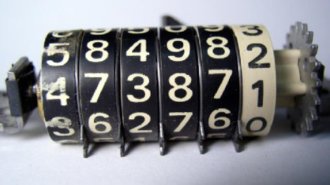
As the old saying goes, if something looks too good to be true, it probably is. Each year, as many as half a million used cars are sold in the U.S. to buyers clueless of the fact that their odometer readings have been tampered with. It is a Federal crime to "turn back" the mileage on a car's odometer, but that doesn't stop the extremely common practice, made even easier on modern cars with digital odometer readouts.
AOL Autos tells the story of one New York man who sold his 200,000-mile 1992 Toyota Camry on Craigslist for $900, only to find the exact same car listed for sale just weeks later for $1,800. The same individual who just bought a 200k-mile Camry was now listing the car with just 79,000 miles on the clock.
1. For older cars with traditional "analog" odometers, check the dashboard and instrument cluster area and look for signs of damage that would come with a hasty hack-job. Look at the pedals, steering wheel and shifter for signs of heavy wear that would not be consistent with a lower-mileage car. Also, look at the odometer gauge itself to see if the number dials are crooked or contain gaps.
2. Newer cars with digital odometers are a little trickier to feel out, though can be tampered with just as easily, if not easier. Still, telltale signs of wear are your best bet at spotting a dishonest car seller. If the car is showing mileage of 10,000 but has severely worn tires and brake pads, a red flag should go up right away.
3. Utilize CARFAX or similar services to obtain a history report on the vehicle. You will be able to compare the mileage since the last time the car was registered. CARFAX also offers a free odometer check tool.
4. Look at the title itself - if the seller can't present one, you shouldn't be buying the car anyway - and compare mileage as of the date listed on the title with current mileage. Better still, ask for repair or maintenance records, which will also list the car's actual indicated mileage at the time the car was serviced.
5. If you have been a victim of odometer fraud, you do have legal recourse against the seller. The law entitles you to $1,500 or the actual amount of damages due to an incorrectly valued used car, whichever is greater, plus legal fees.
Whether buying a used car from a public or private source, you should use the same high level of care and common sense that you would with any other large-ticket purchase. Don't become a victim of odometer fraud, and if you do, follow through with the power of the law, if for nothing else than to prevent the same thief from scamming someone else.
